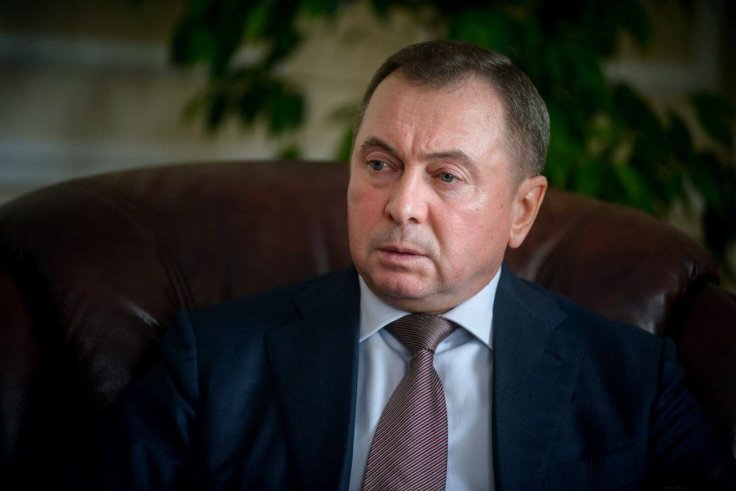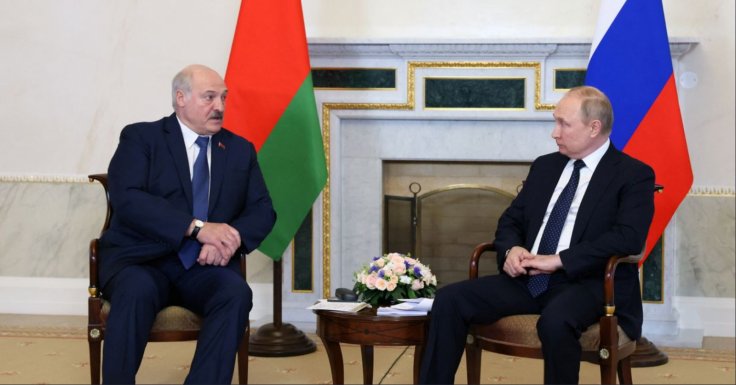The foreign minister of Belarus, Vladimir Makei, died mysteriously at the age of 64 on Saturday, the Belta news agency reported. Makei's death comes just a day after he met with the Pope's envoy amid speculation that they were discussing a secret peace plan to end the Ukraine war.
Makei was regarded as the sole significant communication route to the West in the strict pro-Moscow dictatorship of dictator Alexander Lukashenko. Makei, earlier this year, had dismissed international concerns over a potential Russian invasion of Ukraine being launched from his country. Belarus is the biggest Russian ally in Vladimir Putin's war against Ukraine and has continued to host Russian military bases since the beginning of the invasion.
Mysterious Death

Belarusian state news agency Belta reported Makei's "sudden" death but did not give any cause. "The Belarusian foreign minister Vladimir Makei has died suddenly," the country's Belta reported, citing the country's Foreign Ministry spokesperson Anatoly Glaz.
Since 2012, Makei has served as the chief of staff to Belarusian president Alexander Lukashenko. During Russia's ongoing invasion of Ukraine, Makei has backed Belarus openly.

Belarus, which is located north of Ukraine, has been hosting Russian military bases since the Russia-Ukraine war started in February.
Russian foreign ministry spokeswoman Maria Zakharova wrote on Telegram: "We are shocked by the reports of the death of the Head of the Ministry of Foreign Affairs of the Republic of Belarus Vladimir Makei.
His untimely death comes a day after he met with the Pope's envoy Ante Jozi, amid rumors that they had spoken of a covert peace initiative to end the conflict in Ukraine.

Earlier this week, Makei took part in a summit of the Moscow-led Collective Security Treaty Organisation (CSTO) in Armenia's capital Yerevan, and was due to meet his Russian counterpart Sergei Lavrov in Minsk on Monday.
Not a Coincidence
Makei defended Belarus' stance in the Ukraine war before the UN Security Council in September. "Belarus is referred to as an 'accomplice of the aggressor' or even a party to the conflict," he had said at that time.

"We have said and continue to say: Belarus has never advocated the war. But we are not traitors either. We have allied commitments, and we are strictly following and will follow the spirit and letter of international treaties to which we are parties."
However, his sudden death amid speculation of a peace talk has now raised quite a few eyebrows. Moreover, reports claim that he was "healthy" before he died.
"Strange death. Just in time. Just yesterday he discussed a peace plan with the envoy of the Pope," the pro-war Russian Telegram channel Mardan posted.

"Makei was Lukashenko's main channel of communication with the West. A career intelligence officer, Makei was closely associated with Austrian intelligence and the Austrian elites. Makei provided a liberal trend," Narrative channel said.
"He often carried out delicate assignments from the Kremlin - and helped build special contacts between Moscow and the Austrians. At the same time, he was not a supporter of the Kremlin," the channel added.
Makei was a former chief of staff to Lukashenko and was seeking the presidency of Belarus should the tyrant step down. He was known as Lukashenko's "grey cardinal" and had received military intelligence training from the Soviet GRU.
Many considered Makei to be pro-Western up until anti-Lukashenko protests broke out after a rigged election, at which point he turned against the West. Others asserted that he maintained contacts with the West and maintained an autonomous foreign policy.
Despite Belarus' refusal to completely support Putin's war in Ukraine, the Kremlin has remained concerned, although Moscow has troops stationed there. Lukashenko is Putin's closest international supporter.
There were also worries that, despite being a pariah, Lukashenko was attempting to strike a covert agreement with the West in the event that Putin was overthrown.
The Donetsk and Luhansk "people's republics" were not recognized by the Belarus Foreign Ministry, which infuriated Moscow.








